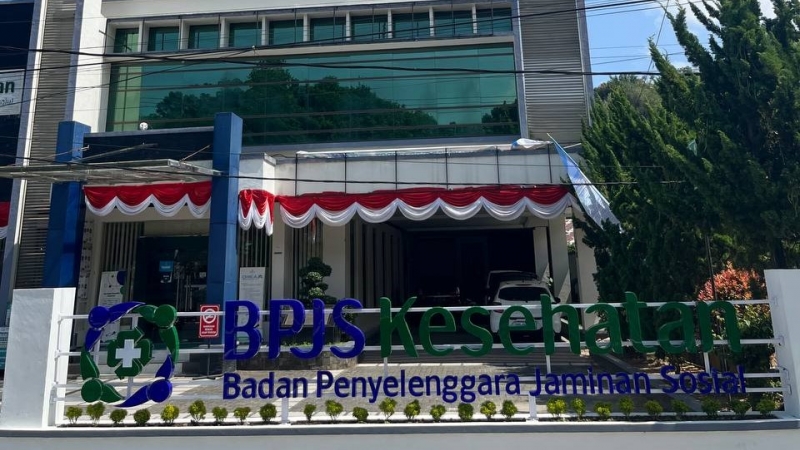Healthcare services must begin at a primary healthcare facility (FKTP) before a patient can be referred to a hospital or advanced-level healthcare facility.
This tiered referral system is strictly regulated under the Indonesian Ministry of Health Regulation No. 16/2024 concerning the individual healthcare referral system.
“All participants must first access healthcare services at a Primary Healthcare Facility (FKTP), such as a community health center (Puskesmas), primary clinic, or private general practitioner, unless the patient is in an emergency condition,” the statement explained.
FKTPs serve as the frontline in the healthcare system, responsible for initial examinations, diagnosis, and treatment of patients under the National Health Insurance (JKN) program.
They also provide health education and promote preventive care. FKTPs are expected to have the most comprehensive knowledge of a patient’s medical history.
“They are, in fact, the most accessible healthcare providers for participants,” the statement noted.
The tiered referral mechanism from FKTPs to hospitals is not meant to complicate access but to ensure patients receive targeted, efficient, and medically appropriate care.
“Hospitals have more comprehensive resources, but if all cases—including minor illnesses that could be treated at FKTPs—are handled there, overcrowding may occur,” the statement added.
Hospital medical staff, who should focus on cases requiring advanced care, would be less effective if their time is spent treating minor conditions.
Referrals to hospitals are issued only when specialized care is needed or when an FKTP cannot manage a patient’s condition due to limitations in facilities, equipment, or medical personnel.
Thus, referrals are based on medical necessity, not patient preference or convenience.
“This is crucial because one of the core principles of the JKN program is ensuring participants receive care based on medical needs, not just personal requests,” the statement emphasized.
FKTPs determine whether a condition can be managed locally or requires advanced care. If necessary, the referring doctor issues a referral letter for the patient to receive specialized treatment at an advanced-level healthcare facility (FKRTL).
FKRTLs are classified based on their capabilities and facilities, ranging from Class D (basic) to Class A (highest-level referral hospitals with advanced specialists and technology).
“Referrals to hospitals must align with the patient’s medical needs and the respective hospital’s competencies,” the statement clarified.
If a patient’s condition cannot be fully treated at a secondary hospital, they may be referred to a tertiary hospital for subspecialist care.
“This demonstrates the government’s structured, tiered, and integrated healthcare system, ensuring optimal care at every level,” the statement said.
Not all referrals are vertical (from lower to higher levels). Horizontal referrals between facilities of the same level also occur—for example, when a hospital refers a patient to another hospital with specific expertise not available locally.
“BPJS Health has developed an integrated referral system where facilities are mapped and profiled based on their capabilities, infrastructure, and available services,” the statement explained.
For instance, if a hospital lacks the necessary medical support for a JKN participant, the patient may be referred to a higher-class hospital.
“Support services, such as ambulance transfers to other hospitals, are also covered by JKN when medically justified,” the statement added.
This tiered referral system is not just administrative but part of the government’s effort to provide equitable, high-quality, and sustainable healthcare for all Indonesians.
The goal is for JKN participants to receive the right care, at the right place, from appropriately qualified medical professionals.
BPJS Health Insurance
BPJS Health Insurance is Indonesia’s national health insurance program, administered by the Social Security Administering Body for Health (BPJS Kesehatan). Established in 2014 under the Universal Healthcare Coverage (UHC) system, it aims to provide affordable healthcare access to all Indonesian citizens and legal residents. The program consolidates earlier health insurance schemes and is funded through premiums paid by members, employers, and government subsidies for low-income participants.
Indonesian Ministry of Health Regulation No. 16/2024
Indonesian Ministry of Health Regulation No. 16/2024 is a legal framework introduced to strengthen public health policies, healthcare standards, and disease prevention measures in Indonesia. It reflects ongoing efforts to modernize the healthcare system, potentially addressing gaps highlighted by recent health crises like the COVID-19 pandemic. The regulation may include updates to medical practices, licensing, or health service requirements, though specific provisions depend on the full text.
Primary Healthcare Facility (FKTP)
A Primary Healthcare Facility (FKTP) is a foundational healthcare unit in Indonesia, providing essential medical services such as basic treatment, preventive care, and health promotion at the community level. Established under Indonesia’s national health insurance system (BPJS Kesehatan), FKTPs aim to improve healthcare accessibility and reduce hospital overcrowding by serving as the first point of contact for patients. These facilities include public health centers (Puskesmas), clinics, and general practitioners’ practices, reflecting Indonesia’s commitment to universal health coverage.
National Health Insurance (JKN)
The National Health Insurance (JKN) is Indonesia’s universal healthcare program, launched in 2014 under the Social Security Administering Body (BPJS Kesehatan). It aims to provide affordable healthcare coverage for all citizens, consolidating previous fragmented schemes into a single-payer system. Inspired by the principle of health equity, the JKN represents one of the world’s largest public health insurance programs, covering over 200 million people.
community health center (Puskesmas)
A **Community Health Center (Puskesmas)** is a primary healthcare facility in Indonesia, established to provide basic medical services, preventive care, and health promotion to local communities. Introduced in the 1950s as part of Indonesia’s public health system, Puskesmas plays a vital role in improving access to healthcare, especially in rural and underserved areas. It typically offers services such as immunizations, maternal and child health, family planning, and disease prevention programs.
advanced-level healthcare facility (FKRTL)
The **Advanced-Level Healthcare Facility (FKRTL)** is a specialized medical institution in Indonesia designed to provide high-quality, referral-based healthcare services. Established to improve the country’s healthcare system, FKRTLs offer advanced diagnostics, treatment, and specialist care, often serving as regional hubs for complex medical cases. These facilities reflect Indonesia’s efforts to enhance healthcare accessibility and expertise beyond primary-level services.
Class D hospital
A **Class D hospital** is a low-tier medical facility, typically found in rural or underserved areas, offering basic healthcare services with limited resources and staff. Historically, such classifications were part of government or organizational systems to categorize hospitals based on infrastructure, services, and capacity, with Class D representing the most minimal level. These hospitals often struggle with funding and equipment shortages but play a crucial role in providing accessible care to marginalized communities.
Class A hospital
A “Class A hospital” in China refers to a top-tier medical institution certified under the national hospital grading system, which evaluates facilities based on size, technology, and service quality. These hospitals are typically large, well-equipped, and affiliated with medical universities, offering advanced treatments and research. The classification system was established to standardize healthcare quality and improve accessibility to high-level medical care across the country.






